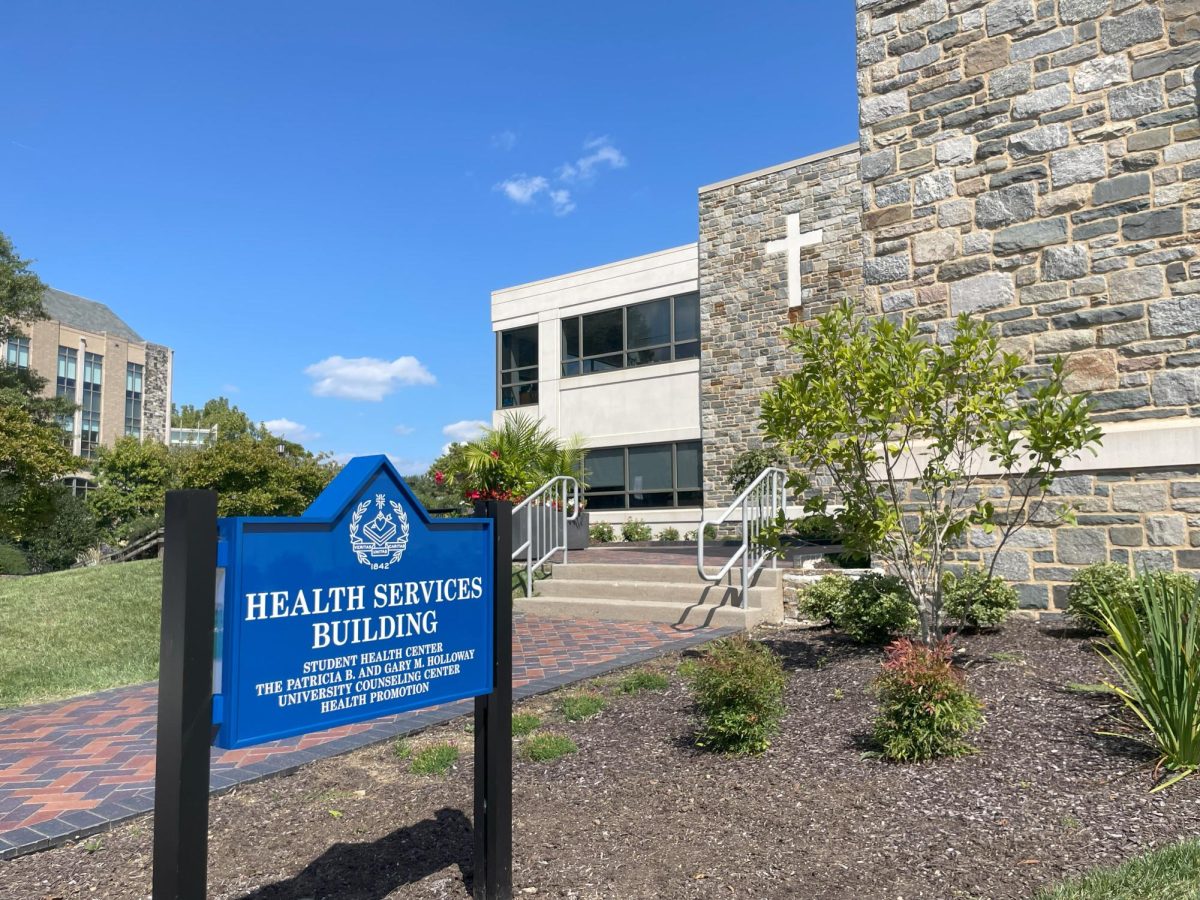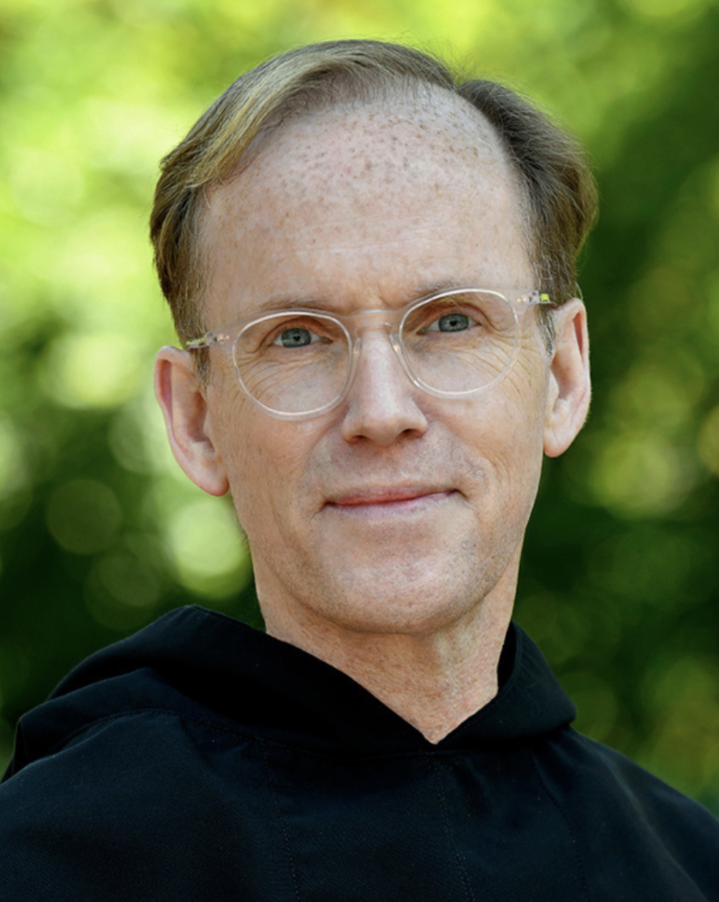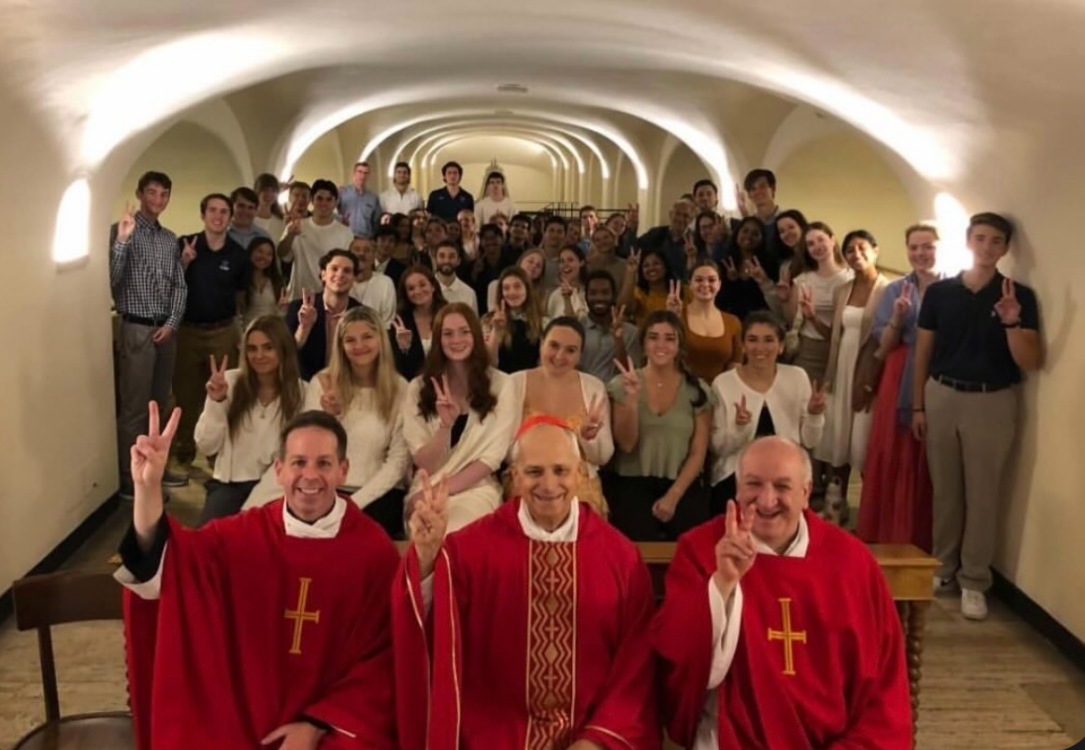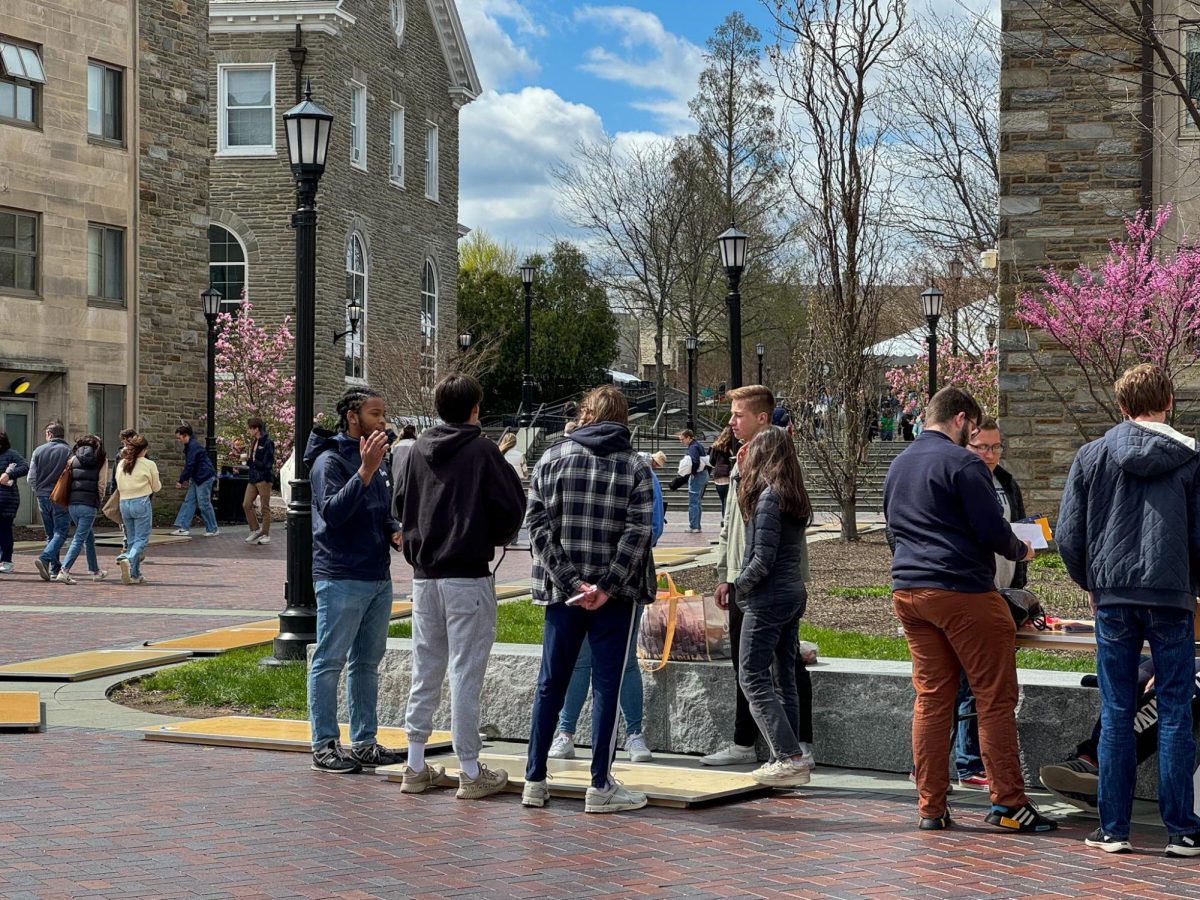On Thursday evening, students gathered in Villanova’s Health Services Building for “Painting with POWER x SAPA,” a collaborative event hosted by on-campus student organizations Peers Offering Wellness Education & Resources (POWER) and Sexual Assault Prevention and Awareness (SAPA).
The event was designed to create a safe and welcoming space for reflection and expression, involving meaningful conversation with hands-on creativity. It gave students the chance to engage with one another on topics that are often difficult, but deeply necessary, to talk about.
Given that the month of April is recognized as Sexual Assault Awareness Month, the evening highlighted the power of peer education and community support in raising awareness and creating conversations around issues of sexual violence. It served as a space for education and a moment to honor the voices and experiences of survivors.
Before the painting began, the group circled up for a guided discussion led by Katie Contey, President of SAPA. Contey opened the conversation by shedding light on The Red Zone, a critical period spanning from the start of the Fall Semester through Thanksgiving Break, during which more than 50% of all college sexual assaults are statistically likely to occur. This statistic is something that is often unknown or overlooked.
She emphasized that being informed and intentional in our relationships, friendships and campus culture can make all the difference. As a whole, the conversation encouraged students to reflect on the broader implications of safety and community responsibility when understanding sexual assault on campus.
POWER members facilitated different portions of the conversation as well, emphasizing their role as peer advocates training in providing resources for mental health.
“I would say POWER’s role and the event was to stress that they are there for every student and there are resources on campus available through us and the office of health promotion, as well,” POWER member Eloise Kirchner said.
It is crucial for students and faculty to attend these student-led events, especially given the current climate on campus. While Villanova, like many universities, continues to face questions about how it handles sexual violence, these small, student-led initiatives reflect the real work being done to shift culture and work towards change. It is in spaces like these where students can have the honest conversations that policies alone cannot always facilitate.
Another key aspect of the discussion involved how to be a positive support system to someone in need. Contey shared tangible tips on how to support survivors of sexual assault, whether that be a friend, classmate or even a stranger.
“Listen without judgment, support their decision, refer to resources,” she said. “These are all really great ways to support survivors. Especially being a listening ear can make even more of a difference than one might imagine.”
What made the evening especially powerful was its intimacy. The group was small, and that created space for open discussion. Unlike larger campus events where conversation can get lost in the crowd, it was intentional and personal. Attendees did not have to come prepared with the right words or background knowledge, but they could simply be engaged and an involved member of the conversation.
Following the discussion, the event transitioned into a creative activity that offered a thoughtful outlet for reflection. Tables were arranged with canvases, paints and brushes, encouraging participants to express their thoughts and emotions through art. The act of painting served as a meaningful continuation of the dialogue, allowing for personal expression beyond words.
As Villanova continues to emphasize student wellness, peer education and inclusive dialogue, events like this play an essential role. They foster environments where students feel supported in learning, sharing, and contributing to a culture of care and accountability, both within and beyond the classroom.
“Events like these on campus are so important and helpful to gain a greater sense of community and understanding of the world around us,” sophomore Angelina Graceffa said. “POWER and SAPA are two great student organizations that help spread awareness.”
These kinds of discussion on campus reinforce the idea that awareness and advocacy can take many forms. They do not always require large-scale actions, and they can begin in smaller, more intentional spaces built on empathy, listening and community. Through “Painting with POWER x SAPA,” students left not only with a creative product but also with a deeper sense of understanding and solidarity.







